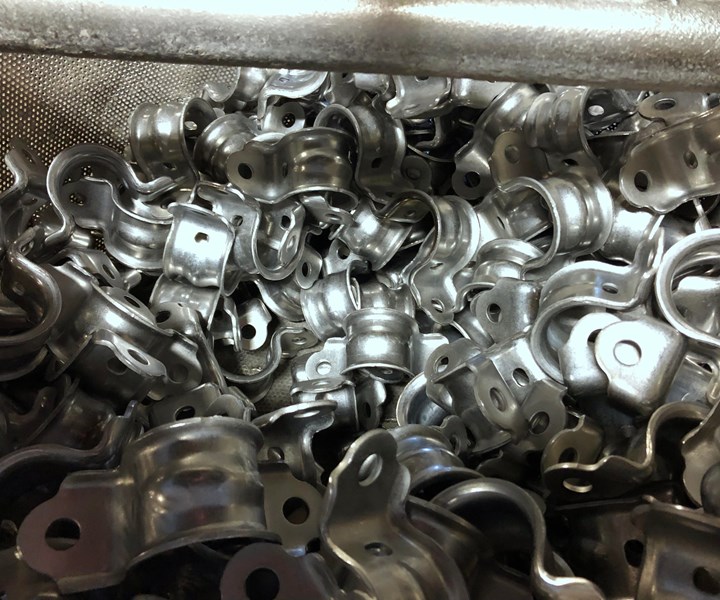Asterion Ultra Zinc-Nickel Systems Provide Corrosion Resistance
Asterion’s line of ultra alkaline and acid zinc-nickel plating systems produce a high nickel alloy of 12–16%.

Asterion’s line of ultra alkaline and acid zinc-nickel plating systems produce a high nickel alloy of 12–16% with excellent throwing power and uniform alloy deposition over a wide range of current densities. According to the company, superior corrosion protection, extended NSS performance and exceptional aesthetics are consistently achieved when used in combination with Asterion passivate and sealant processes. Suited for both rack and barrel operations, it is said that each system offers ease of operation and waste treatment.
Asterion | 800-428-0719 | asterionstc.com
Related Content
-
Products Finishing Reveals 2024 Qualifying Top Shops
PF reveals the qualifying shops in its annual Top Shops Benchmarking Survey — a program designed to offer shops insights into their overall performance in the industry.
-
3 Tests to Ensure Parts are Clean Prior to Plating
Making sure that all of the pre-processing fluids are removed prior to plating is not as simple as it seems. Rich Held of Haviland Products outlines three tests that can help verify that your parts are clean.
-
Advantages to Pumped Eductor Agitation
Not all agitation methods are created equally. Pumped agitation with eductor nozzles can improve process tanks and quickly show a reduction in operating costs while keeping staff safe, following environmental legislation and preventing pollution.










.jpg;maxWidth=300;quality=90)


